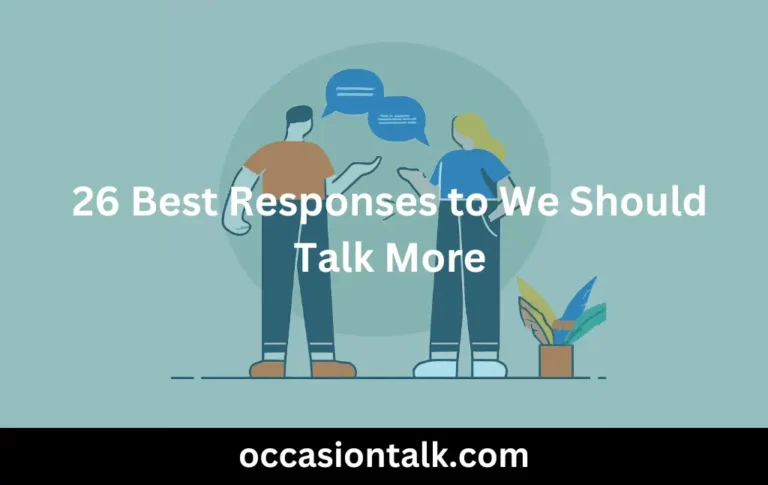20 Ways to Say Nevermind Politely
A situation may arise where you want to express a thought, but upon reevaluation, you decide to refrain.
It could be a recommendation you were about to make, an opinion you were on the verge of sharing, or a question you were about to ask.
How do you then politely convey that you’ve chosen not to continue with what you were about to say?
In informal conversations, the term “nevermind” is frequently used to signify that the speaker has decided not to proceed with a particular topic or issue.
However, the challenge arises when we need to communicate this change of mind in a polite and respectful manner, especially in more formal or sensitive contexts.
This article will delve into polite alternatives to the word “nevermind”, providing examples and guidelines for their usage.
By the end of this read, you’ll have a toolkit of phrases to gracefully express a change of mind without causing offense or misunderstanding.
The Power of Polite Language
The use of polite language is vital for several reasons:
- Respect: Polite language is a manifestation of respect. It communicates your recognition of the importance of the situation and your willingness to comply with the accepted norms.
- Credibility: When used in professional or formal settings, polite language bolsters your credibility. It indicates that you are serious, prepared, and knowledgeable.
- Clarity: Polite language is often more precise and less prone to misinterpretation than casual language. It helps ensure your message is understood as you intended.
- Establishing Trust: Politely expressing yourself can help build trust. It can make you appear more reliable and respectful, which can influence how others perceive and respond to you.
- Meeting Expectations: In some cultures and social situations, using polite language is a norm or expectation. Failing to do so can be seen as disrespectful or uninformed.
On the flip side, using casual language like “nevermind” in formal settings can come across as unprofessional, disrespectful, and can potentially damage your reputation or relationships.
Therefore, it’s essential to choose your words wisely, adjusting your language to match the context and audience.
20 Ways to Say Nevermind Politely
Here are several polite ways to express a change of mind:
- “Let’s set this aside for now.”
- “Perhaps we could revisit this topic at a later time.”
- “Upon reconsideration, I’ve changed my previous stance.”
- The issue has already been resolved.
- “It’s quite alright, please don’t concern yourself with it.”
- “It doesn’t hold relevance anymore.”
- “I’ve had a change of heart regarding…”
- “After further thought, I believe we can bypass this issue.”
- “I suggest we exclude this topic from our current discussion.”
- “Please, don’t trouble yourself over it.”
- “It’s no longer a concern.”
- “All is well.”
- “Please disregard my previous comment.”
- “I’ll address that issue.”
- I’ll take responsibility for that.”
- “Kindly forget about it.”
- “There’s no need for apologies.”
- “It’s not an issue.”
- “We can postpone this discussion to a later time…”
- “Upon further reflection, I’ve decided…”
RELATED:
- 45 Ways to Ask Someone if they are Free to Meet You
- 40 Best replies to see you later
- 14 Ways to politely ask for Money from Cousin
Tips for Using These Polite Phrases
Here are some tips to effectively use these polite alternatives to “nevermind”:
- Keep a Respectful Tone: Regardless of the phrase you choose, your tone should always be respectful and patient. This helps to convey your sincerity and prevent misunderstandings.
- Give Context: If possible, provide a brief reason for your change of mind. This can help others understand your perspective and avoid confusion.
- Use Appropriate Non-Verbal Cues: Body language like maintaining eye contact, open posture, and nodding can show that you’re still engaged and respectful.
- Acknowledge the Listener: If someone has taken the time to listen or engage with your ideas, thank them. A simple “Thank you for your understanding” or “I appreciate your time” can help maintain positive relationships.
- Be Clear yet Considerate: It’s important to be clear about your intentions to avoid future discussions on the subject. However, do so in a way that is tactful and considerate.
- Consider the Timing: If possible, try to express your change of mind at a natural pause in the conversation. This can make the transition smoother and less abrupt.
Final Thoughts
Mastering the art of polite language, particularly when expressing a change of mind, can be a valuable skill in both personal and professional settings.
It shows respect, enhances credibility, and fosters trust in relationships. The polite alternatives to “nevermind” provided in this article offer a guide to navigating such situations with grace and tact.
With practice, these phrases can become a natural part of your communication toolkit, helping you to navigate complex conversations with ease and poise.
The key lies in being respectful, clear, and considerate in your communication, regardless of the situation or audience.






